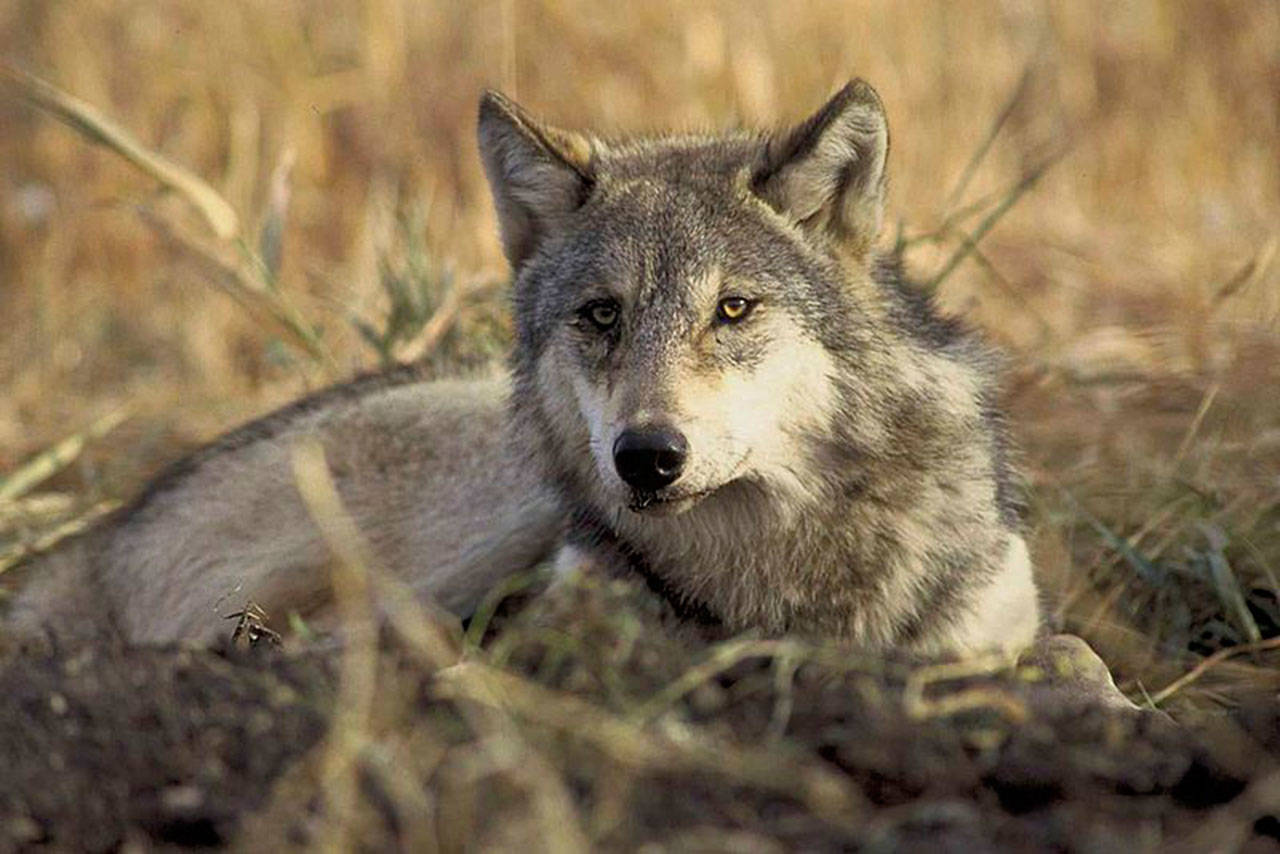Wolves still have yet to reestablish themselves in the forests of King County, but experts believe it’s likely only a matter of time.
Across Washington, there’s more than 20 known wolf packs, but only one has made the trek across the Cascades, east of Bellingham. Washington State Department of Fish and Wildlife Wolf Specialist Ben Maletzke said as wolf populations recover, they often spread out from places where there’s existing packs.
“We just haven’t seen that happen yet in King County,” he said.
Wolves were eradicated from Washington state in the 1930s, but in 2008, the first pack reemerged populated by wolves who had naturally journeyed down from Canada. So far, they’ve favored remote areas of north central and eastern Washington. Maletzke said it’s unknown why they haven’t moved in to King County yet, with two packs across the mountains in Kittitas County, but there have been wolf sightings. It could be a lack of prey, the sheer number of people recreating in the mountains or the ruggedness of the terrain, or other reasons.
“We don’t know all the factors obviously of how they pick where they’re going to establish on the landscape, but we just try and find them when they get there,” he said.
Over the winter, when the wolf population is the most stable, the state works to find and count wolves within its borders. That work is ongoing right now, and they’re developing a new model to understand how and where wolves are recovering.
Paula Swedeen, policy director for Conservation NW, said she expects to see more wolves in King County in the coming years.
“It certainly seems like we should have more packs in Western Washington at this point, and it’s a bit of a mystery that we don’t, but I can’t help but think that we’re on the cusp of discovering quite a bit more,” she said.
The ruggedness of the Cascades also provides wolves with more places to hide away from humans. But once a pack establishes itself, it becomes easier to notice and track. And once populations in other parts of the state hit a certain threshold, they’ll likely start migrating out. However, Swedeen said that threshold will likely be different from other states that have seen wolf recovery. She’s said the state model should shed more light on packs in Washington.
“That’s going to be our best, scientifically-based, consolidated projections about when we should see that more rapid increase in growth,” Swedeen said.
As wolves do return to the area, it raises the potential for conflict between humans, livestock and pets. Swedeen said the federal government could provide more funding for proactive deterrents. These could include electric fencing or money for range riders, which travel with and keep an eye on livestock.
Wolves are protected under state law in all parts of Washington, but were federally delisted by the Trump administration nationwide. President Joe Biden ordered the federal U.S. Fish and Wildlife Service to review this delisting.
However, Swedeen said Washington state’s wolf management plan is solid, and much more nuanced than at the federal level. She still wants to see the federal government to downlist wolves nationwide to threatened, which afford some protections while allowing for management in other states with higher populations.
This story originally appeared in the Bothell-Kenmore Reporter, a sister publication to The Herald.
Talk to us
> Give us your news tips.
> Send us a letter to the editor.
> More Herald contact information.

























